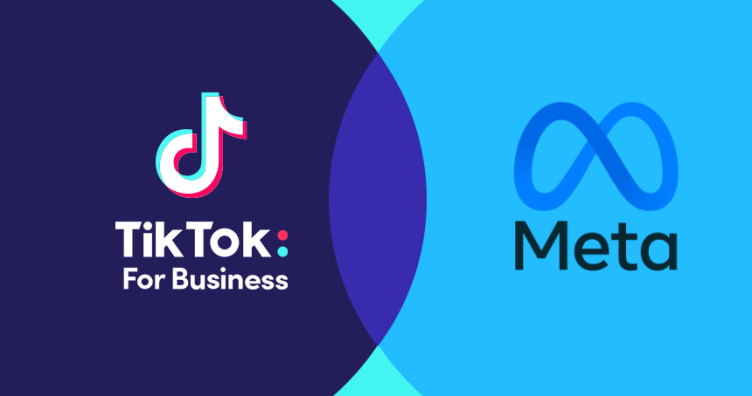When Meta Platforms CEO Mark Zuckerberg and COO Sheryl Sandberg made the point, during their update to investors on the company’s financial results, that the way users and consumers are using and consuming social media is changing, the financial markets with a big thumb down.
It’s something we’ve already started to see – because we’re working with a number of Australian and overseas companies that are already redirecting their digital marketing budgets in the direction of TikTok, at the expense of Facebook.
The decisions our customers are making (and that we can measure with them) are based on testing how TikTok stacks up in brand, traffic and other marketing benchmarks, against the outcomes of Facebook, Instagram, YouTube, other social media channels, and Google search.
These are the decisions that were partly reflected in Meta’s financial results.
Where to next – and why?
In the debate about where to next for Meta Platforms, businesses will continue to work out where to play, which is today’s digital marketing reality. What’s not in doubt is that, on certain measures, TikTok performs very well – as Meta Platforms and the financial markets discovered.
The role of digital marketing, and understanding and defining the role of each platform, has not changed. And certainly with TikTok it’s no different. As long as people consume content, watching videos in particular (a TikTok strength) and clicking through to websites, it has a role to play. If it can double as a direct conversion platform, even better. As Mark Zuckerberg himself noted, social media content continues to evolve, from text on PCs to videos to immersive experiences on smartphones.
Does TikTok stack up – and how?
The short answer is that it does.
The long answer is that it depends on what you’re measuring, and your ultimate measurement of commercial success, across products, brands and demographics.
For one company we work with, using TikTok particularly works in driving brand, engagement and traffic to the website. It is already markedly cheaper than Facebook, to deliver comparative performance.
For example, for the quarter October-December, TikTok delivered 50% more Impressions for paid marketing content, for just 35% of the budget. What’s more, the cost-per-thousand (CPM) for TikTok was one-fifth that of Facebook.
The story changes, however, when considering conversions, where TikTok has yet to prove itself. Its value has been in delivering visitors to the website who have been retargeted using other platforms, with much greater control around interests and age targeting, and relevant content that fits with where the target customer is within the conversion funnel.
Alongside these results, Amazon Ads delivered the best CPM. Search delivered the most Impressions and Clicks (although Google was expensive relative to TikTok). There were however significantly more conversions made via Google
What’s more, Meta’s Facebook and Instagram still proved to be valuable in the middle and bottom of the conversion funnel, ultimately driving online sales.
So, in the real world (as well as the digital world), the answer is indeed complex.
At the crossroads? Possibly.
Is Meta Platforms at a crossroads? Possibly. That TikTok is creating a new competitive playing field is exciting for businesses.
But I don’t think the reality for marketers and businesses has fundamentally changed.
They still need to use social media, and search, to grow, and they need to know where exactly to play, and where exactly to invest. Every social media channel potentially has something to offer.
Consumers can be fickle. They will use different platforms and devices in various combinations, always in ways that appeal to them.
What matters is how brands discover where they need to be, and what content they need to serve, to drive the best return on their digital marketing investments. The content, messaging and calls-to-action need to be different for every platform.
As always, the devil is in the data, and the actions that lead to better business results. As the above example shows, TikTok can drive great brand and traffic outcomes, especially at the top of the sales funnel, but Meta Platforms (and Google) are still very effective in driving conversions and sales, and activating existing customers.
Will TikTok out-run Meta Platforms, Facebook, Instagram and WhatsApp? Except for investors, that is, I think, the wrong question.
The better question is around how to use this competition on social media and search platforms to your advantage, and around where you place your bets when investing in content, and buying your advertising, in ways that best delight your customers.

